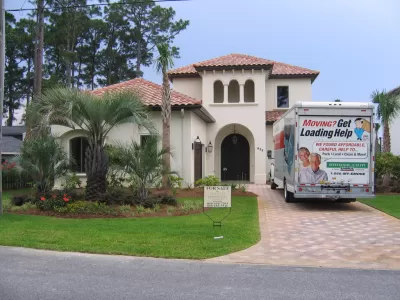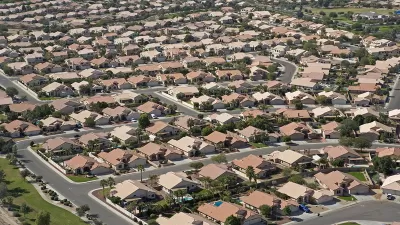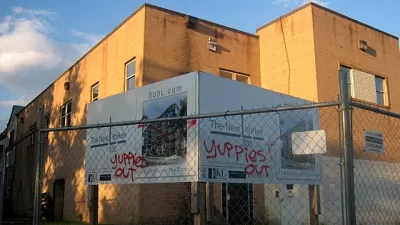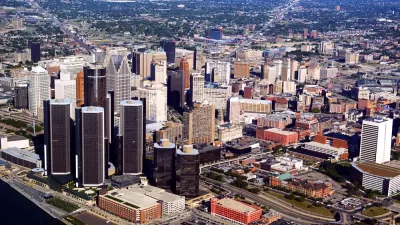Commentators often say an influx of wealth is transforming American cities. But if prosperity is really still suburban, what are the consequences for the environment?

Working from a Martin Prosperity Institute study on residential segregation, Ben Adler argues, "The gentrification trend in a handful of coastal cities has been blown way out of proportion by journalists who happen to live there, when far more urban neighborhoods remain mired in poverty."
"This is bad news for the environment. The constant push to expand the urban periphery paves over undeveloped land and requires carbon-intensive activities, from cutting down trees to mixing asphalt. Once they get to the suburbs, people consume more energy to heat and cool their larger, detached homes, water their bigger lawns, and drive more frequently and farther."
Adler points out that the urban rebirth hypothesis confuses city and metro area statistics: actual city residents remain poorer than their suburban neighbors. From the article: "In addition to the suburb-versus-city segregation, suburbs are themselves typically more economically segregated than cities, because they do not offer as wide a variety of housing types. A suburban town that requires each house to sit on its own lot of no less than, say, one-quarter of an acre, makes all the housing unaffordable to low-income workers."
The article also calls attention to non-resident visitors, a source of diversity that suburbs often lack. "Another way you will see more diversity in those New York neighborhoods is that you will encounter people in them, such as shoppers and workers, who do not live there. As [Richard] Florida readily agrees, measuring residential segregation only tells part of the story of what people experience in their daily lives."
FULL STORY: No, the rich are not all moving to the city now

Planetizen Federal Action Tracker
A weekly monitor of how Trump’s orders and actions are impacting planners and planning in America.

Restaurant Patios Were a Pandemic Win — Why Were They so Hard to Keep?
Social distancing requirements and changes in travel patterns prompted cities to pilot new uses for street and sidewalk space. Then it got complicated.

Maui's Vacation Rental Debate Turns Ugly
Verbal attacks, misinformation campaigns and fistfights plague a high-stakes debate to convert thousands of vacation rentals into long-term housing.

In California Battle of Housing vs. Environment, Housing Just Won
A new state law significantly limits the power of CEQA, an environmental review law that served as a powerful tool for blocking new development.

Boulder Eliminates Parking Minimums Citywide
Officials estimate the cost of building a single underground parking space at up to $100,000.

Orange County, Florida Adopts Largest US “Sprawl Repair” Code
The ‘Orange Code’ seeks to rectify decades of sprawl-inducing, car-oriented development.
Urban Design for Planners 1: Software Tools
This six-course series explores essential urban design concepts using open source software and equips planners with the tools they need to participate fully in the urban design process.
Planning for Universal Design
Learn the tools for implementing Universal Design in planning regulations.
Heyer Gruel & Associates PA
JM Goldson LLC
Custer County Colorado
City of Camden Redevelopment Agency
City of Astoria
Transportation Research & Education Center (TREC) at Portland State University
Jefferson Parish Government
Camden Redevelopment Agency
City of Claremont





























